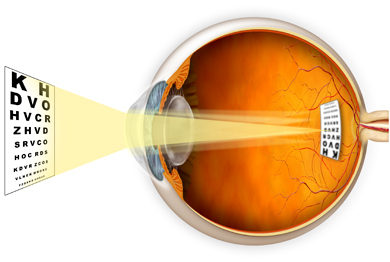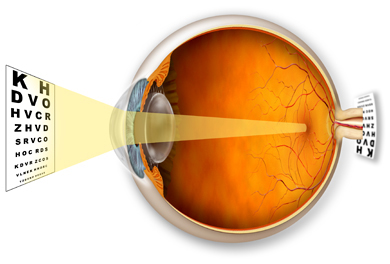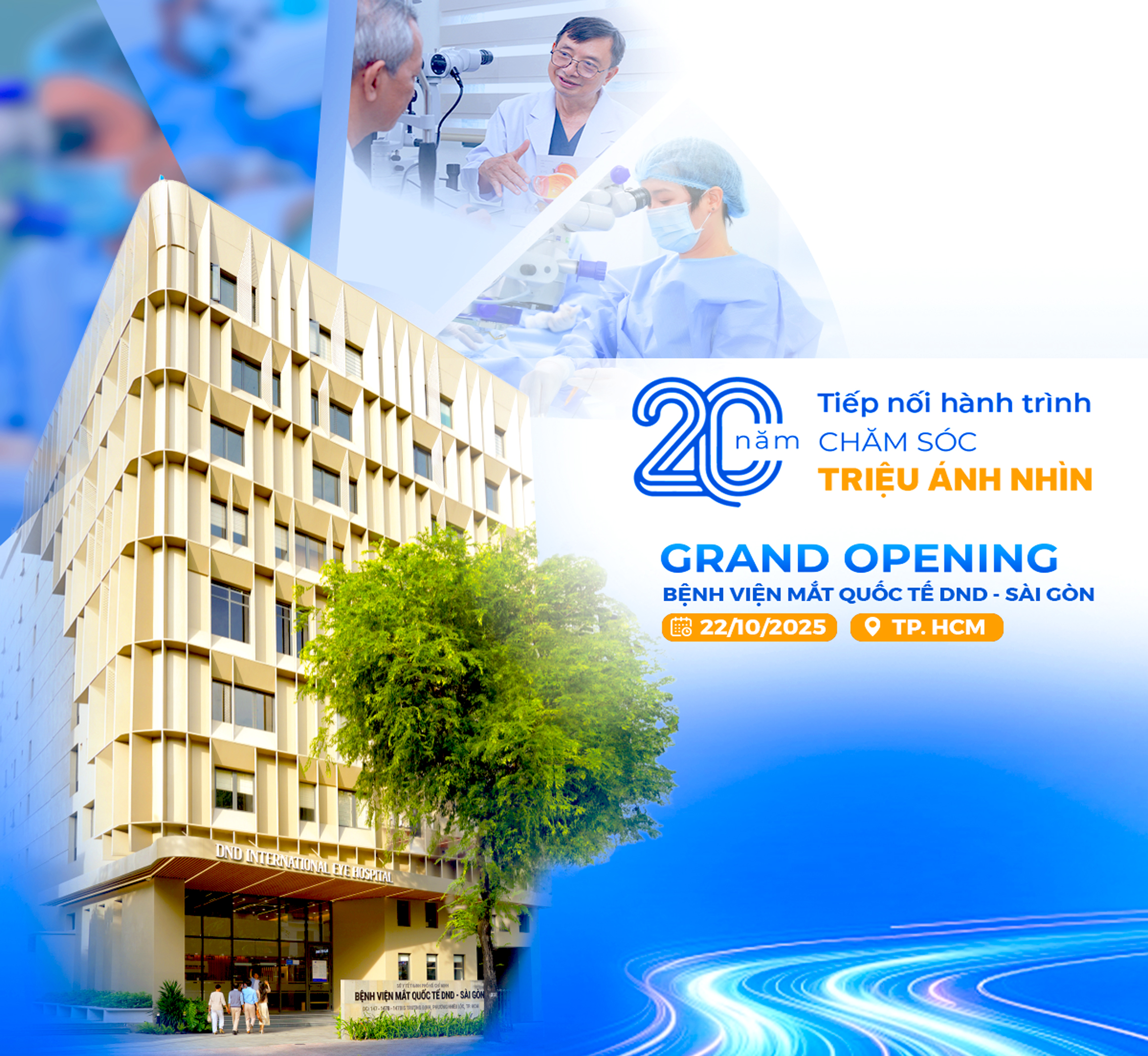- Trang chủ
- Giới thiệu
- Giới thiệu chungBệnh viện mắt quốc tế – DND là bệnh viện chuyên khoa mắt công nghệ cao với đội ngũ bác sĩ dày dặn kinh nghiệm
- Lịch sử phát triểnĐược thành lập từ năm 2011, bệnh viện đã từng bước chuyển mình trong đầu tư công nghệ và nhân lực
- Tầm nhìn - Sứ mệnhMục tiêu “Vì đôi mắt cộng đồng” đem lại cho người bệnh dịch vụ và công nghệ hiện đại nhất phù hợp với thu nhập
- Đội ngũ nhân sự
- Trang thiết bị
- Các khoa phòng
- Dịch vụ
- Trung Tâm Khúc XạTrung tâm khúc xạ. Điều trị và phẫu thuật khúc xạ và lão thị.
- Trung tâm PhacoTrung tâm phẫu thuật Phaco Phẫu thuật điều trị bệnh Đục thủy tinh thể
- Trung tâm đáy mắtTrung tâm tầm soát Võng mạc. Điều trị và tầm soát các bệnh lý đáy mắt.
- Khoa khám bệnhKhám và điều trị ngoại trú các bệnh lý về mắt.
- Tạo hình mắtTrung tâm điều trị thẩm mỹ vùng mắt và phẫu thuật trung phẫu thẩm mỹ
- Dịch vụ thẻCác gói thẻ theo dõi và điều trị (Khúc xạ, Đáy mắt), và hỗ trợ ( thẻ Family, thẻ VIP )
- Dành cho khách hàng
- Tin tức sự kiện
- Liên hệ
Viễn thị
Viễn thị
[:vi]
Viễn thị là gì?
Định nghiã: là mắt có công suất khúc xạ kém so với chiều dài của mắt, vì thế các tia sáng song song vào mắt sẽ hội tụ ở sau võng mạc.
Nguyên nhân: viễn thị trục, viễn thị bán kính cong, viễn thị chỉ số khúc xạ.
Triệu chứng:
– Đối với người lớn trên 30 tuổi thường biểu hiện bằng những triệu chứng của điều tiết nhiều và thường xuyên nhất là khi nhìn gần: không đọc sách được lâu, sau một thời gian đọc mắt bị mờ, nặng mắt, vùng lông mày. Khi đọc thường nheo mắt, nhăn trán.
– Đối với trẻ em thường đọc sách khó khăn, thường đưa sách tới gần mắt do điều tiết quá độ. Nhức đầu vào lúc tan học. Thường dễ bị bỏ qua trừ trường hợp trẻ bị lác qui tụ điều tiết
Soi đáy mắt thấy gai thị nhỏ, đỏ hồng.
Biến chứng: lác điều tiết qui tụ ở trẻ em. Lão thị sớm ở người lớn.
 |
 |
|
| Mắt bình thường | <–> | Mắt Viễn thị |
[:en]
Hyperopia, or farsightedness, is a common vision problem, affecting about a fourth of the population. People with hyperopia can see distant objects very well, but have difficulty focusing on objects that are up close. The condition is sometimes referred to as “hypermetropia” rather than hyperopia.
Hyperopia Symptoms And Signs
Farsighted people sometimes have headaches or eye strain and may squint or feel fatigued when performing work at close range. If you get these symptoms while wearing your eyeglasses or contact lenses, you may need an eye exam and a new prescription.
What Causes Hyperopia/Hypermetropia?
This vision problem occurs when light rays entering the eye focus behind the retina, rather than directly on it. The eyeball of a farsighted person is shorter than normal.
Many children are born farsighted, and some of them “outgrow” it as the eyeball lengthens with normal growth.
Sometimes people confuse hyperopia with presbyopia, which also causes near vision problems but for different reasons.
Hyperopia Treatment
Farsightedness can be corrected with glasses or contact lenses to change the way light rays bend into the eyes.
If your glasses or contact lens prescription begins with plus numbers, like +2.50, you are farsighted.
You may need to wear your glasses or contacts all the time or only when reading, working on a computer or doing other close-up work.
Refractive surgery, such as LASIK or CK, is another option for correcting hyperopia. Surgery may reduce or eliminate your need to wear glasses or contact lenses.
Investigational procedures involving corneal implants may be a future option for correcting hyperopia.
 |
 |
|
| Normal eye | <–> | Eye with hyperopia |
[:]
Đội ngũ Bác sỹ
Trang thiết bị
Các thông tin trên website Matquocte.vn chỉ dành cho mục đích tham khảo, tra cứu, khuyến nghị Quý khách hàng không tự ý áp dụng. DND không chịu trách nhiệm về những trường hợp tự ý áp dụng mà không có chỉ định của bác sĩ.
Chính sách quản lý bảo vệ, khai thác & đảm bảo an toàn thông tin khách hàng sử dụng website.
Copyright 2023 International Eye Hospital | All right reserved.

































